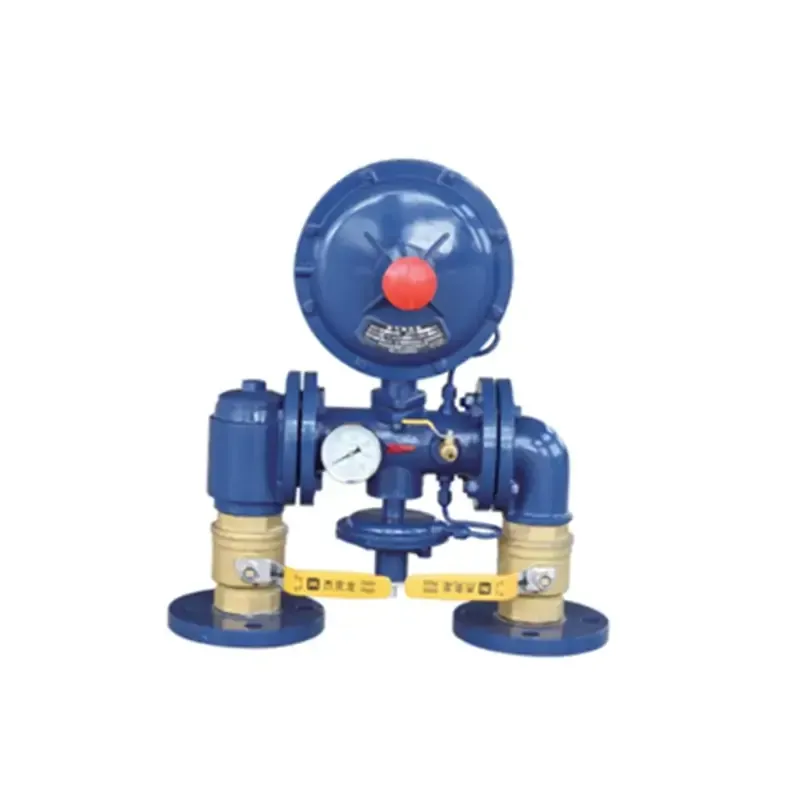
Oct . 06, 2024 17:38
Back to list
مبادل حراري للغاز
Understanding Gas Heat Exchangers A Key Component in Thermal Systems
A gas heat exchanger is a crucial device in various industries, facilitating the transfer of heat between two or more fluids without allowing them to mix. This technology is especially vital in applications where heating or cooling gases is necessary for optimal performance and efficiency. In this article, we will explore the principles, types, applications, and benefits of gas heat exchangers.
At its core, a heat exchanger operates on the principle of thermal conductivity. By utilizing conduction and convection, it allows heat to flow from a hotter fluid (gas) to a colder one, thus efficiently managing energy. The effectiveness of a gas heat exchanger depends on several factors, including the temperature difference between the fluids, the surface area of heat transfer, and the flow arrangement.
.
1. Shell-and-tube heat exchangers consist of a series of tubes, one set carrying the hot gas and the other carrying the cooler gas. This design is efficient for high-pressure applications and can accommodate a variety of gases.
مبادل حراري للغاز

2. Plate heat exchangers utilize thin plates stacked together to create channels for hot and cold gases. These are compact and efficient, offering a higher surface area for heat transfer, which makes them suitable for applications with limited space.
3. Air-cooled heat exchangers, as the name suggests, use air as the cooling medium. These exchangers are often employed in power plants, refineries, and chemical processing where water is scarce or expensive.
The applications of gas heat exchangers are extensive. They play a significant role in industries such as HVAC, chemical manufacturing, oil and gas, and power generation. For instance, in HVAC systems, gas heat exchangers help regulate indoor temperatures, improving energy efficiency and overall comfort. In the oil and gas industry, they are essential for cooling processes and recovering heat from exhaust gases, contributing to higher efficiency and reduced emissions.
The benefits of utilizing gas heat exchangers are manifold. First, they significantly enhance energy efficiency by recovering waste heat, which can be reused in various processes. This not only saves energy costs but also reduces the environmental impact associated with energy consumption. Secondly, they contribute to system reliability and longevity by maintaining optimal operating temperatures. Additionally, many heat exchangers are designed to withstand harsh conditions, ensuring they can perform effectively even in demanding environments.
In conclusion, gas heat exchangers are integral components in modern thermal systems, serving to optimize heat management across various industries. Their ability to transfer heat efficiently while minimizing energy waste makes them invaluable in today’s push for sustainability. As technology advances, the design and efficiency of gas heat exchangers will continue to evolve, further enhancing their role in energy conservation and environmental protection.
Latest news
-
Safety Valve Spring-Loaded Design Overpressure ProtectionNewsJul.25,2025
-
Precision Voltage Regulator AC5 Accuracy Grade PerformanceNewsJul.25,2025
-
Natural Gas Pressure Regulating Skid Industrial Pipeline ApplicationsNewsJul.25,2025
-
Natural Gas Filter Stainless Steel Mesh Element DesignNewsJul.25,2025
-
Gas Pressure Regulator Valve Direct-Acting Spring-Loaded DesignNewsJul.25,2025
-
Decompression Equipment Multi-Stage Heat Exchange System DesignNewsJul.25,2025

